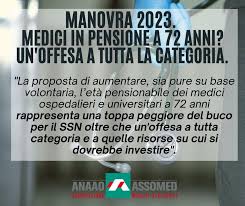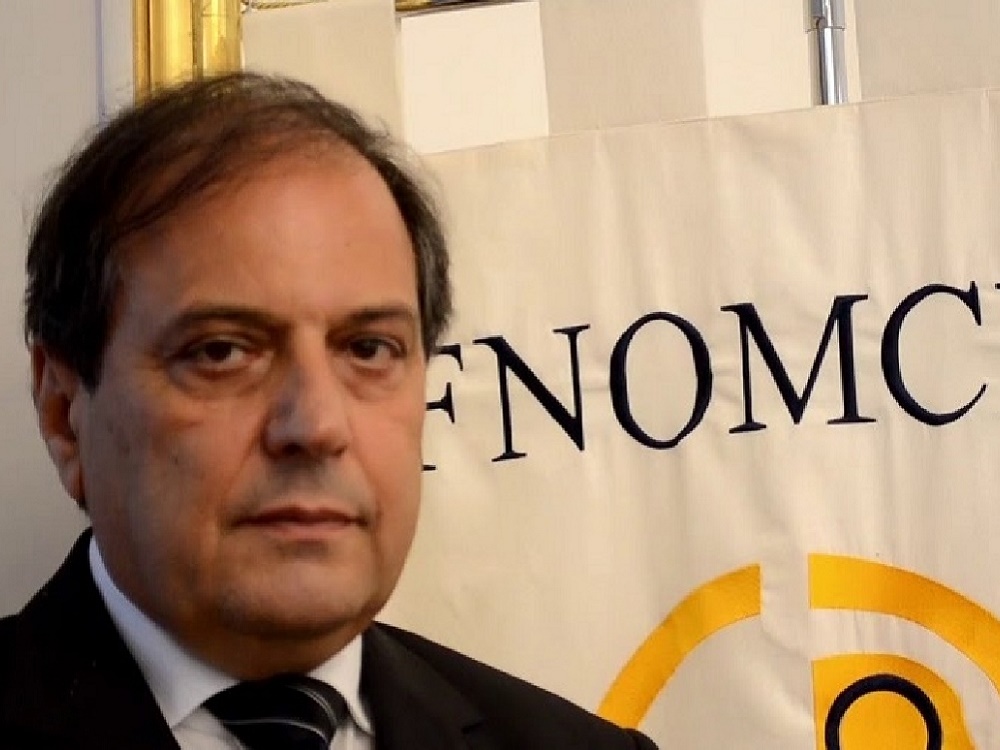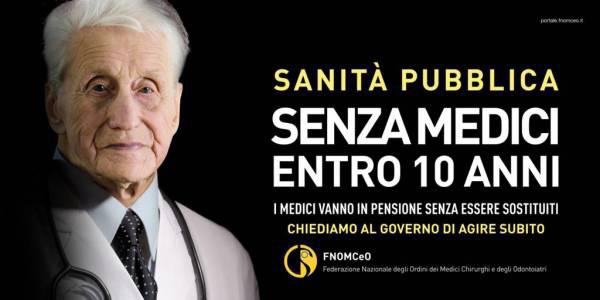
With some amendments of the majority deposited and reported in the decree One thousand extensions the hypothesis of raising the retirement age of doctors to 72, already rejected in the end-of-year Maneuver, reappears. According to one of the amendments, retirement at 72 could be optional. At the base the aim of doing
 in the face of personnel shortages, in the meantime allow for an increase in medicine and surgery graduates with the related specializations, guarantee continuity in the provision of essential levels of assistance and reduce waiting list times. Hypothetical derogation on the retirement age on which the trade unions Anaao Assomed and Smi have expressed opposition.
in the face of personnel shortages, in the meantime allow for an increase in medicine and surgery graduates with the related specializations, guarantee continuity in the provision of essential levels of assistance and reduce waiting list times. Hypothetical derogation on the retirement age on which the trade unions Anaao Assomed and Smi have expressed opposition.
"Measure useful only to favor certain lobbies", comments on “Il Secolo XIX” the national secretary Anaao Assomed Pierino Di Silverio underlining that “we try to bring back through the window what had come out of the main door”.
According to the general secretary of the Italian Doctors Union (Smi), Pina Onotri, “these are not the solutions to improve the fortunes of proximity medicine. There is no need for buffer measures that penalize doctors even more, now fleeing the NHS due to unbearable workloads and wages in free fall ".
Mostly SNAMI the proposal is unacceptable, it would be an even worse solution than the flaw it is intended to remedy
On the other hand, the general secretary of the Federation of general practitioners (Fimmg), Silvestro Scotti, is in favour, "as paradoxical as it may seem, I believe this possibility is also favorable for young people".
The FNOMCeO is more open to the condition that it is a temporary provision. In this regard he published a communicated which we quote from the title:
Doctors retiring at 72? Rings (FNOMCeO): “Ineffective measure, but lesser evil. Structural reforms are needed, investing in professionals"
“Doctors retiring at 72? If the intention is to fill the staff shortage, it is an ineffective measure. The real solution is to make the system attractive”.
 Thus the President of the FNOMCeO, the National Federation of Medical Orders, Filippo Rings, intervenes in the debate sparked by the amendments to One thousand extensions aimed at temporarily raising the retirement age of doctors in the National Health Service.
Thus the President of the FNOMCeO, the National Federation of Medical Orders, Filippo Rings, intervenes in the debate sparked by the amendments to One thousand extensions aimed at temporarily raising the retirement age of doctors in the National Health Service.
“If instead the goal – he adds – is to give the system a shot in the arm, while waiting for the new specialists and general practitioners who have trained thanks to the increase in scholarships to arrive in three or four years, the measure may make sense. In any case, an over seventy-year-old doctor, but qualified and experienced, is better than a non-EU doctor hired without certainty of his qualifications, knowledge of the Italian language and not registered with our Orders, or another professional set to do the job of a doctor ”.
A kind of "lesser evil”, therefore, which according to the President of FNOMCeO can be accepted, under specific conditions: “the temporariness, the voluntariness, and the commitment to improve, in these three years, the working conditions of doctors, in the hospital and on the territory”.
“Making doctors work beyond the age of seventy cannot become normal" explains Rings, who already in 2018, with the communication campaign on "centenary doctors", prophesied the situation. “The paradox of colleagues with wrinkled faces who, in white coats, looked at us from posters in our streets and squares, was intended to sensitize public opinion and politics to the risk that, shortly thereafter, there would no longer be doctors at heal us. Now the fiction has dramatically become reality and we can't look the other way".
 “That of increasing, until 2026, the retirement age for doctors of the National Health Service – he concludes Rings – it can be a "buffer" measure, to give time for new specialists to train, but it is not the solution to the shortage of doctors. Implementing it without investing in the system, without reforming it, would be a short-sighted policy, because it would only aggravate the situation; ineffective, because it would be like treating a seriously ill person with a warm cloth; and unjust, because we cannot ask those who have already given so much further sacrifices, without preparing young people for a better future. We need a structural reform of the system, which invests in doctors and professionals, who constitute its lifeblood".
“That of increasing, until 2026, the retirement age for doctors of the National Health Service – he concludes Rings – it can be a "buffer" measure, to give time for new specialists to train, but it is not the solution to the shortage of doctors. Implementing it without investing in the system, without reforming it, would be a short-sighted policy, because it would only aggravate the situation; ineffective, because it would be like treating a seriously ill person with a warm cloth; and unjust, because we cannot ask those who have already given so much further sacrifices, without preparing young people for a better future. We need a structural reform of the system, which invests in doctors and professionals, who constitute its lifeblood".
FNOMCeO Press and Information Office
information@fnomceo.it
www.fnomceo.it
23/01/2023





